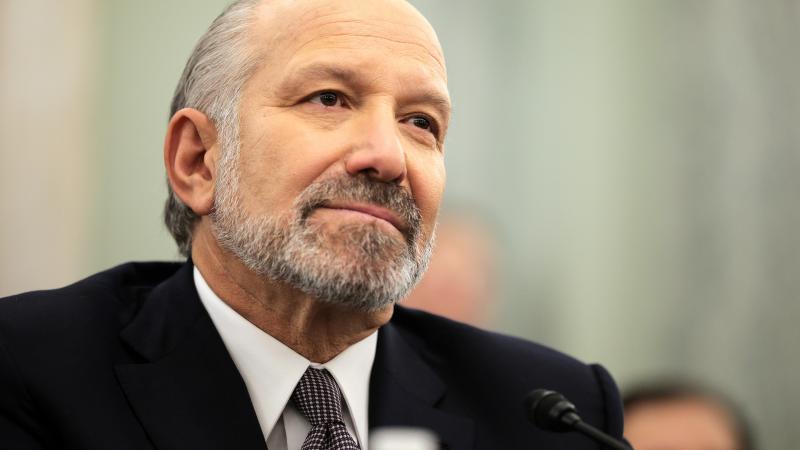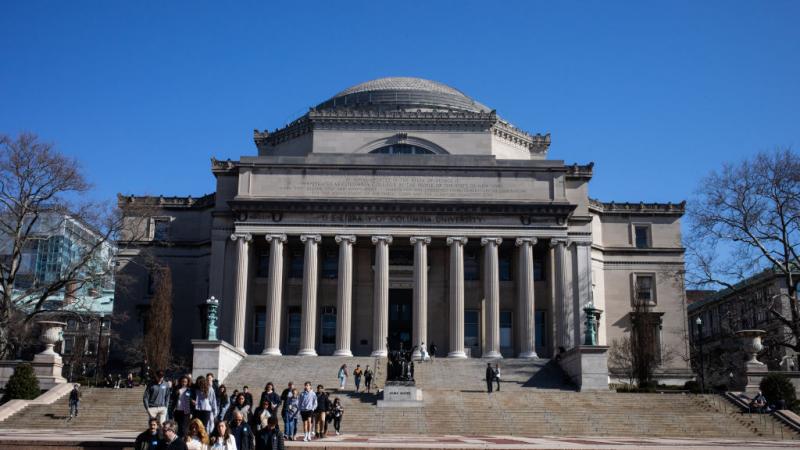On little-noticed panel, Fauci and Chinese counterpart envision lengthy COVID restrictions
Pulmonologist and longtime Chinese Communist Party member Nanshan Zhong projects years of COVID mitigation measures, as Fauci warns against "jumping the gun" on reopening society.
Top U.S. infectious disease expert Anthony Fauci on a recent public health panel signaled common ground with a renowned Chinese doctor and public health administrator on the matter of ongoing COVID-19 restrictions, with both Fauci and his Chinese counterpart suggesting that those restrictions could continue for many months or even years.
Fauci in early March appeared on the virtual panel, titled "The Future of Health," hosted by the University of Edinburgh. Also present in the meeting was Chinese pulmonologist Zhong Nanshan, who has been at the forefront of China's response to the pandemic and who has been referred to by national spokeswoman Hua Chunying as "China's Fauci."
Zhong has a long career in the Chinese Communist Party hierarchy, having served for years in delegatory positions in both the CCP's National Congress and its National People's Congress. He has also served on numerous state research initiatives and is the founder of the state-funded Guangzhou Institute of Respiratory Diseases.
On the panel, Fauci and Zhong both expressed hopes that COVID-19 restrictions worldwide would continue well into the future.
Zhong himself claimed that efforts to develop natural immunity to COVID-19 are inadvisable from a national policy standpoint. "It doesn't work this way," he said. "And it's not realistic, and less scientific, and ... inhumane."
Zhong argued that "mass vaccinations" are the "commonsense" approach to engendering herd immunity in the population, but "to do that … will take about two or three years time with global collaboration."
"I have noticed in other countries," the doctor said elsewhere, "that actions [are] not so strict enough. So that will be not enough to stop the spreading of [the virus]."
Fauci himself echoed those concerns, warning against the danger of what he said was "jump[ing] the gun or do[ing] it too quickly" and seeming to imply that countries should keep COVID-19 measures in place even if they appear to have suppressed the virus within their borders.
"It is important to realize," Fauci claimed, "that variants arise, and if you suppress the virus in one country, but it is allowed to spread uninhibited in other areas of the world, sooner or later, the variants, the new lineages, the mutants, will come back and rekindle the outbreak, even in countries that seem to have it under control. So we still have a considerable amount of task in front of us."
The infectious disease expert later implied that countries should strive for the near-total elimination of the virus as a matter of public policy.
"If we do not completely suppress this," he said, "we will continue to be challenged by variants, which have a way of coming back to bite us."
Experts continue to advocate that restrictions remain in place indefinitely
Fauci himself did not respond to a request for comment seeking to learn if he agreed with Zhong's two-to-three-year estimate and if he believed measures such as masking and physical distancing would continue over that time period.
Yet his remarks on the panel were the latest in the doctor's public advocacy that COVID-19 mitigation measures continue for the foreseeable future even as the vaccine becomes more widespread.
Asked last month when Americans might anticipate foregoing masks in public places, Fauci told CNN that it was "possible" masking guidelines might remain in place into 2022.
Similar to his remarks alongside Zhong, Fauci during that interview expressed hope that, at some point, Americans will face "a minimal, minimal threat that you will be exposed to someone who is infected."
"[I]f you combine getting most of the people in the country vaccinated with getting the level of virus in the community very, very low," he said, "then I believe you're going to be able to say, for the most part, we don't necessarily have to wear masks."
Mayo Clinic infectious disease expert Gregory Poland, meanwhile, said last month that individuals should continue following public health guidelines even after getting vaccinated.
"[W]hile the vaccine reduces your risk,” he argued, “it does not eliminate the risk of being exposed to having the disease and asymptomatically transmitting the virus to others."















